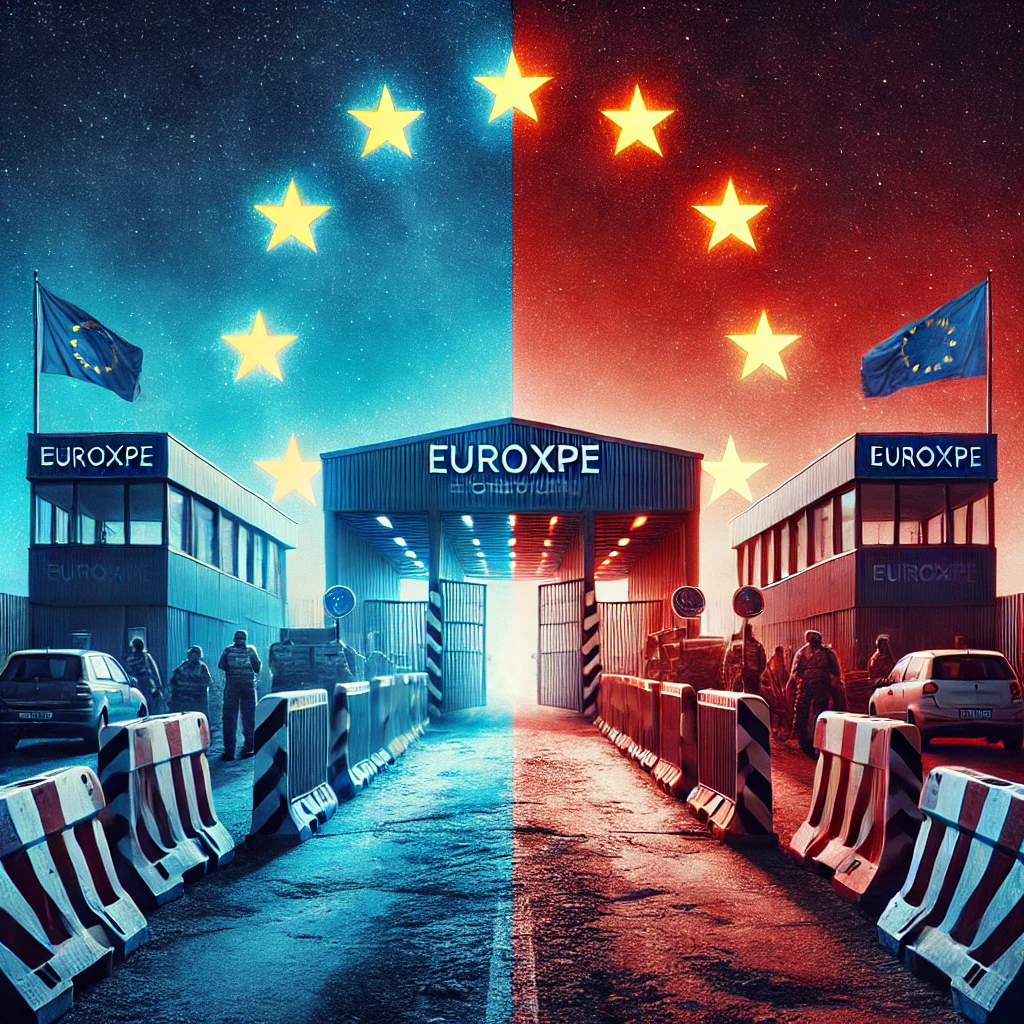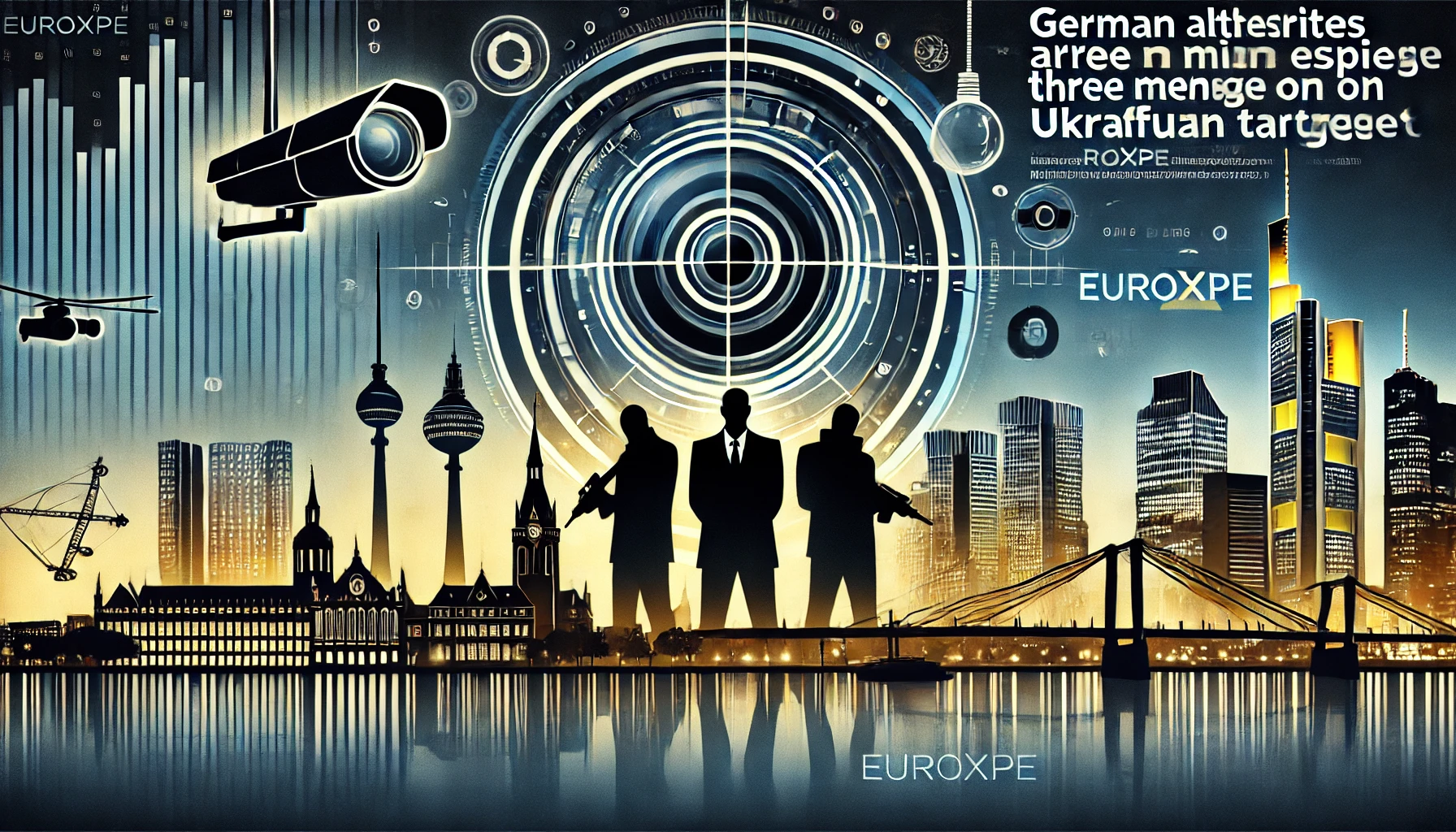Germany’s recent decision to implement systematic border controls has sent shockwaves across Europe, raising concerns about the future of the European Union and its fundamental principles. As a key player in the EU, Germany’s actions are likely to have far-reaching consequences, especially on the Schengen Agreement and the bloc’s commitment to free movement. With migration at the centre of the political debate, the rise of right-wing parties is shaping a new narrative across the continent, one that threatens the essence of European unity.
A Shift in the Far Right’s Strategy
Historically, far-right parties across Europe advocated for leaving the European Union. France witnessed calls for a “Frexit”, while in Germany, the term “Dexit” gained traction. However, in recent years, this rhetoric has shifted. Instead of abandoning the EU, far-right leaders have realised they can reshape it from within, transforming it into a union of strong, nationalist states with the power to implement their own anti-immigration policies. As French National Rally leader Jordan Bardella remarked, “You don’t leave the table when you are winning the game.”
This strategic shift is particularly evident in Germany, where the ruling coalition has announced the introduction of border checks at its nine land borders, set to take effect on 16 September. The aim? To curb immigration, particularly from asylum seekers entering through other EU countries. However, this policy risks violating EU law and undermines the very foundation of the European project: solidarity and the freedom of movement.
Far Right Gains Momentum
Germany’s decision has drawn praise from figures like Viktor Orbán, Hungary’s controversial leader, who welcomed Chancellor Olaf Scholz into what he called the “club” of leaders working to stop migration. Orbán’s sentiments were echoed by other far-right leaders across Europe, who view Germany’s move as a victory for their broader agenda.
Within Germany, the Alternative for Germany (AfD), a far-right party, and the more centrist Christian Democratic Union (CDU) have both rallied around tougher immigration controls. Despite statistics indicating a decline in asylum applications in 2023, the ruling coalition seeks to regain lost electoral ground by aligning itself with these more hardline positions. This pandering to the right has raised concerns that mainstream political parties are legitimising extremist views, further polarising the political landscape.
The Impact on the Schengen Area
One of the EU’s crowning achievements, the Schengen Area, allows for the free movement of people between 25 of its 27 member states. By implementing border checks, Germany risks undermining this central pillar of European integration. The Schengen Agreement has long been viewed as a symbol of the EU’s commitment to peace and cooperation, recognised when the Union was awarded the Nobel Peace Prize in 2012.
However, with border controls set to last for an initial six months, there are fears that other countries will follow suit. Austria has already stated it will not accept migrants turned back at the German border, and similar sentiments have been echoed by other European leaders. Poland’s Prime Minister Donald Tusk has been particularly critical, condemning Germany’s actions as a systematic suspension of Schengen and a violation of European law.
Migration: A Symptom of Deeper Issues
Germany’s approach to migration reflects a broader misunderstanding of the forces driving people to flee their homes. Migration is not a problem that can be solved with border checks. The root causes—conflict, political persecution, and the climate crisis—require long-term, multilateral solutions. By focusing on short-term political gains, Germany risks exacerbating racial tensions and undermining the rights of vulnerable individuals.
Furthermore, the argument that Germany is experiencing a “loss of control” over its borders is largely unfounded. The government’s decision to introduce these measures just before the Brandenburg state elections suggests that political motivations, rather than necessity, are driving these policies. Whether or not Germany can effectively patrol its 3,700 km of borders is irrelevant. What matters is the signal this sends to voters and to Europe as a whole.
The Future of Europe at Risk
Germany’s central position within the EU and its economic strength make its actions particularly consequential. By prioritising national interests over European ideals, Germany risks unraveling the post-national vision that has underpinned the EU for decades. Geert Wilders, leader of the far-right Freedom Party in the Netherlands, has already stated that if Germany can implement border checks, so can the Netherlands, further emboldening nationalist movements across the continent.
As European leaders grapple with the challenges of migration, economic uncertainty, and political polarisation, the fate of the European project hangs in the balance. Germany’s actions, while aimed at addressing domestic concerns, could lead to the erosion of one of the EU’s most fundamental principles: unity across borders.
The implications of this policy shift extend far beyond Germany’s borders. As Scholz’s government continues to navigate these complex issues, the decisions made in Berlin will shape the future of Europe for years to come.







[…] Germany’s Border Controls: A Threat to the European Union’s Future Shares: […]